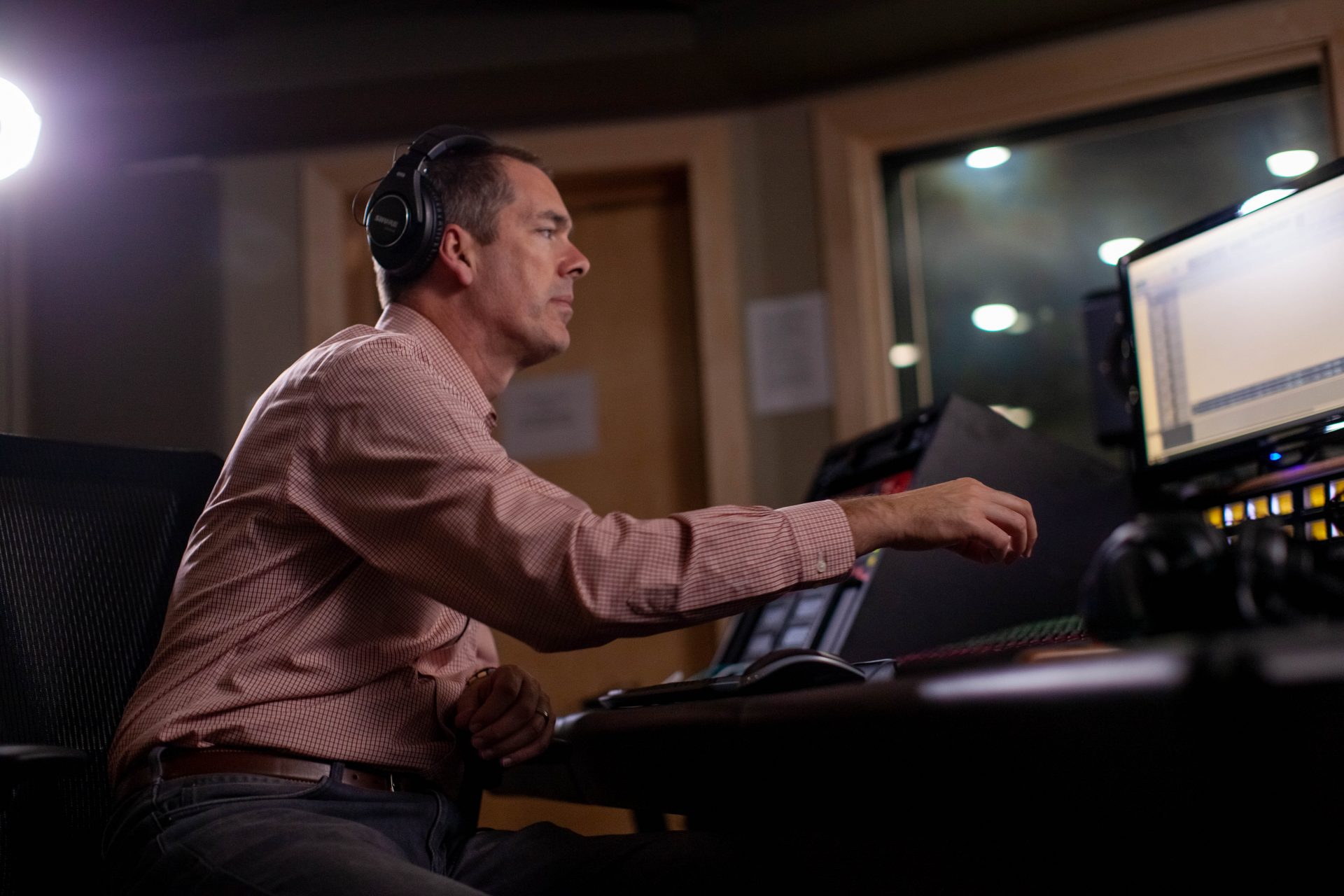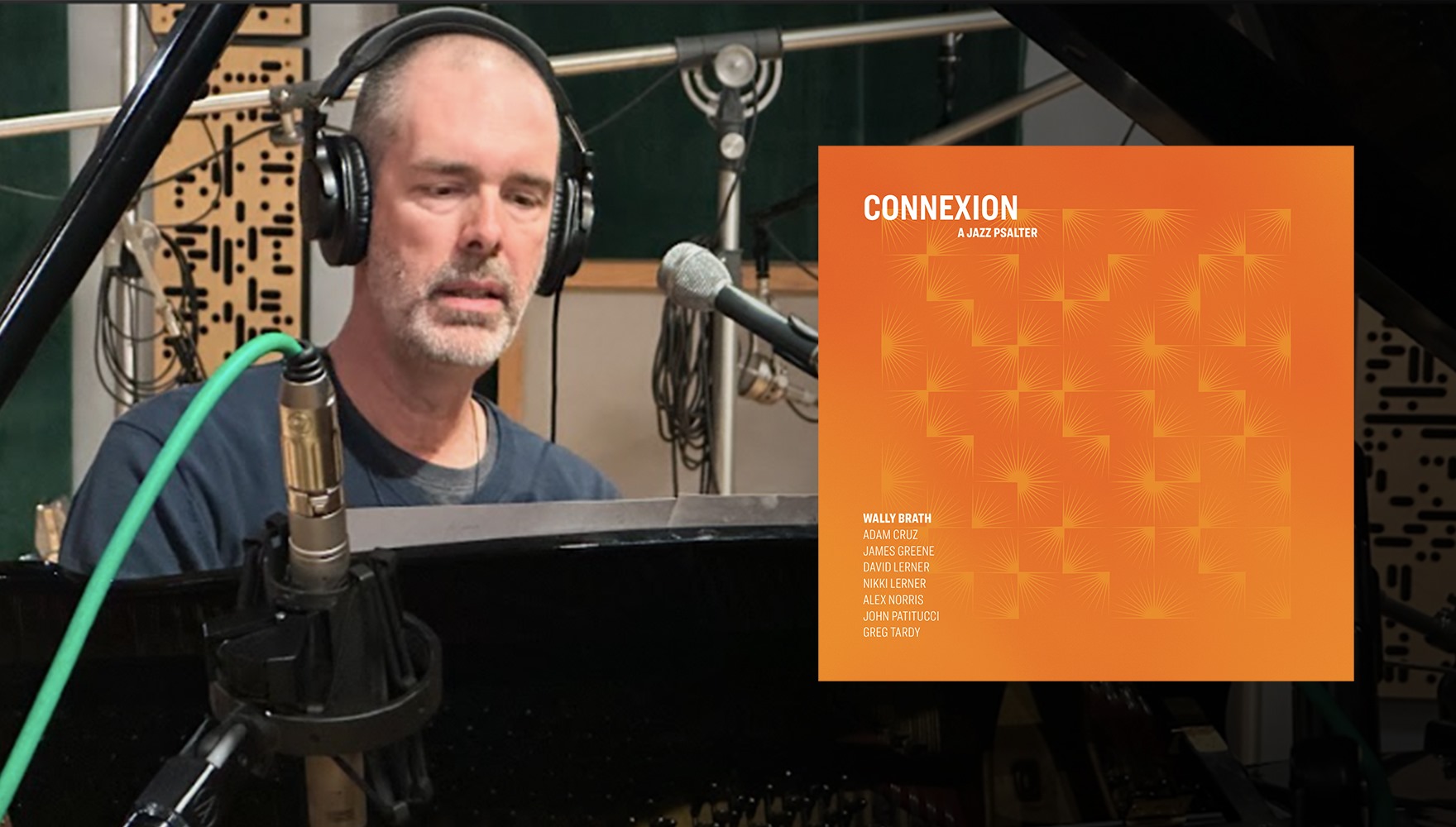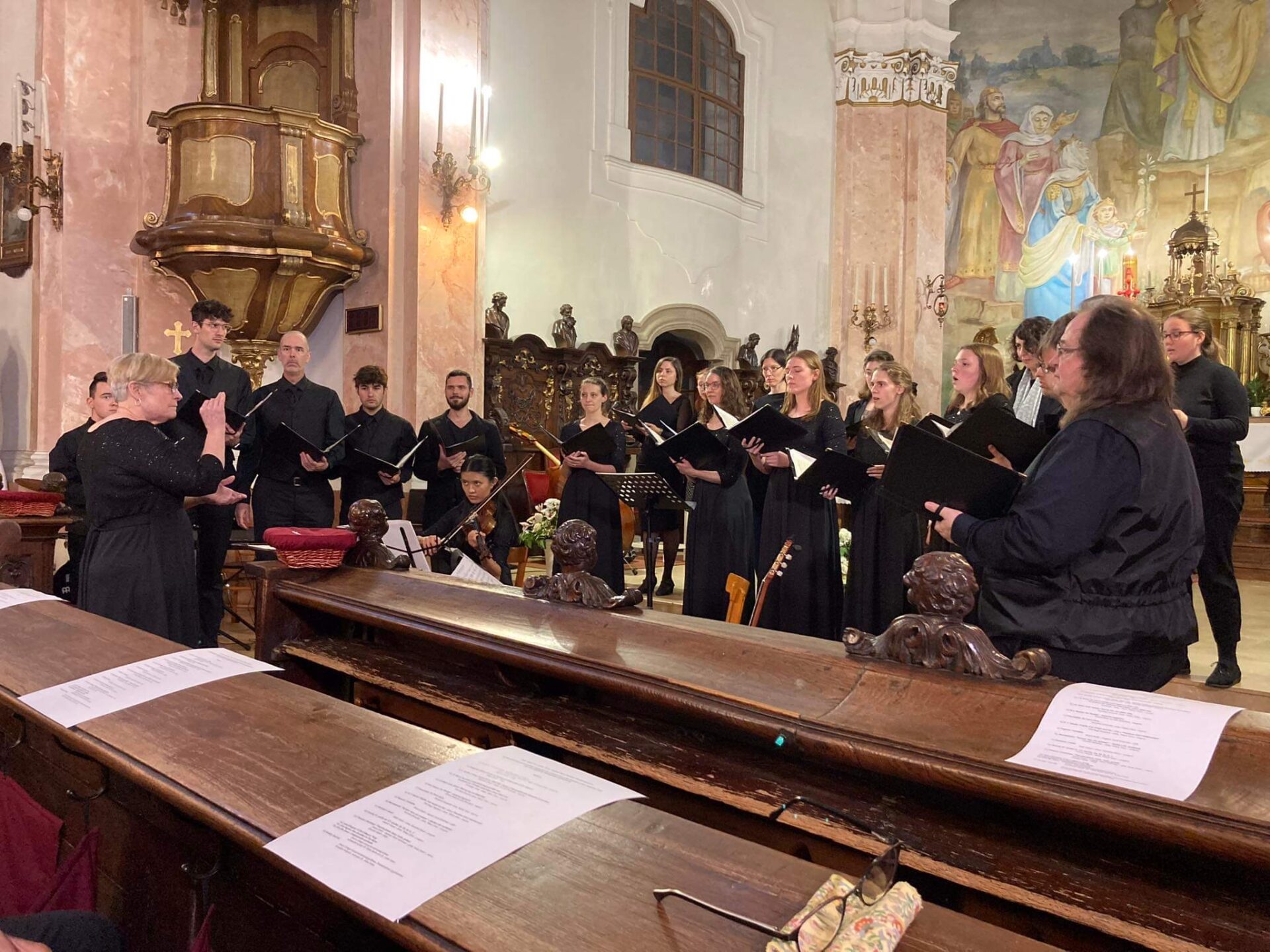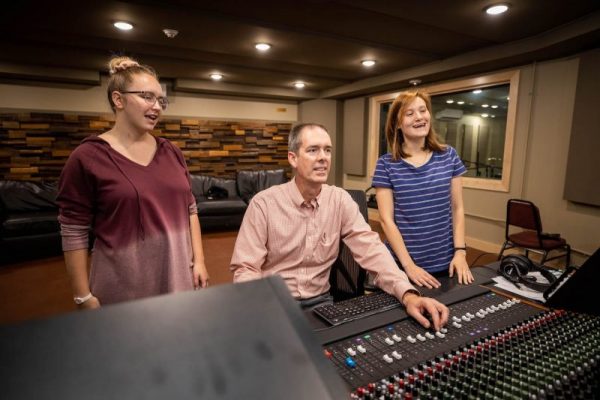By Dr. Kim Reiff, dean of the School of Arts & Humanities
As always, it is a joy to be in the presence of Dr. Wally Brath.
He serves as the associate professor and program director of worship arts, as well as the associate dean of the School of Arts and Humanities. He also oversees several academic and community music productions.
“Busy” is an understatement.
Brath’s Journey to Grace
We recently reminisced about our first conversation and his journey to Grace in 2016. We had just expanded the Art Department to include visual and performing arts, which housed a new worship music program. We were looking for a worship arts professor who could lead its creative vision.
I recall being awe-inspired. I was aware he was a gifted musician with extensive experience in worship arts, but as he articulated his view of music as ministry, I recognized he would be the right faculty for not only this program but Grace and the community as well.
I explained I was not a musician but a visual artist working with musicians who were feeling loss from the closing of Grace’s former music program. He quietly listened as I shared the context of our need and vision.
Wally’s journey through worship music has been culturally multifaceted. He was involved in church planting in Minnesota, a city that had 80 documented languages at the time. He served as a worship leader and professor, and he was living out his passion for ethnomusicology, the study of music in its cultural contexts.
He was drawn to the idea of a new program that prepared students for a worship leadership degree anywhere. Also, since he grew up in Northern Indiana, the possibility of returning home closer to family pulled on his heartstrings. After prayerful consideration, he said yes.
Worship Ministry Training as Theology and Music
Upon his arrival, Wally embraced the interrelatedness of teaching, scholarship, and service. Shared learning became classroom discussion, and scholarship became inspiration for compositional arrangements that allowed for multicultural and multigenerational music participation.
His service to the community through music concerts and productions has also touched tens of thousands of listeners.
Wally helps those completing a worship leadership degree navigate not only praise- and joy-filled worship services but also difficult circumstances. He tries to make them understand that music is not just a performance.
“During worship, we’re all being formed spiritually in our ideas about who God is and how we respond to Him,” he said. He referenced Colossians 3:16, which says, “Let the Word of Christ dwell in you richly, teaching and admonishing one another in all wisdom, singing psalms and hymns and spiritual songs with thankfulness in your hearts to God.”
According to him, Grace’s worship ministry training is designed to combine theology and music.
Having had the opportunity to teach with Wally, I have seen this balance in the classroom. As he engages with students through an invitational approach, he models the connection between theology and the creative arts.
Wally compares musical compositions and visual landscapes to encourage discussion about the Source of beauty and creativity: our Creator. He also fosters community by demonstrating care and appreciation for cross-cultural understanding through creative art forms.
Psalms, Jazz, and a Sabbatical
Wally recently focused his scholarship on the integration of theology and music as he completed his sabbatical research in the Psalms. He is intrigued that “God would give us a song book that deals with every human emotion.”
He explains that although prayers were originally sung, we don’t interact with the Psalms as often in our own worship. This led to his interest in relating the Psalms to the congregation.
During a sabbatical, he wrote nine Psalm compositions examining the metanarratives of Scripture: Creation, Fall, Redemption, and Restoration. He chose Psalms that looked at those categories and composed melodies with them. His background in jazz allowed him to connect improvisation, emotion, and the Psalms.
He then traveled to a New York City recording studio to work with some great jazz musicians, brought these tracks back to Grace, and added new recordings.
The worship arts program only focused on rebuilding during COVID, but it has seen renewed growth in the last two years. We are excited about the music production degree we added, as well as the new intercultural music concentration within the worship arts degree.
“Combining intercultural studies and worship ministry training prepares students for cross-cultural music ministries, whether global, national, or regional,” said Wally. “For example, in Fort Wayne, there is a large Burmese population, and major US cities have a variety of cultures represented. A student may be in an inner-city church in Chicago and see 10 or more cultures represented. We help students navigate that.”
Within the recording studio, Wally has collaborated with a variety of music ministry partners. Along with his students, he has teamed up with colleagues from France and Kazakhstan to record music for churches.
“This allows our music ministry to go beyond Grace campus as we connect with others through our worship arts and music production programs,” said Wally.
Wally, Personally
As for Wally’s family, the kids are getting older. He and his wife, Shana, married while undergraduates at the University of Cincinnati Conservatory of Music. Since then, they have raised three musically gifted children. Their son, Grayden, is a bass player, their daughter, Karissa, is a violinist, and Levi is a percussionist.
Wally’s favorite pastime that doesn’t involve worship ministry training is bicycling. He loves the challenge of hitting the trails in Winona Lake.
When asked how he would recommend encouraging young musicians, he shared, “We should encourage creativity beyond the formal lessons of the classroom.” He explained that he had a piano teacher who welcomed his enthusiasm for a variety of musical genres, encouraging him to pursue his own interests beyond her lesson plans.
He talked fondly of how she inspired his curiosity and understanding of how to transcribe melodies and write his own compositions. This is why he tries to encourage parents and other teachers to encourage students in their unique creative interests, not to squelch their dreams.
Like the worship art program’s goal “to equip students to think like a theologian, labor like an artist, and shepherd like a pastor,” he lives this out daily as he serves students, faculty, and community in his multifaceted roles. His teaching, scholarship, and service stem from his understanding of how our human cultural needs are nurtured through worship ministry, academia, biblical truth, intercultural study, and the creative and performing arts.
Wally’s students learn to emulate his care for culture and one another through opportunities that include the Summer Festival of Music, Grace ensembles, Lancer Chorus, community art programs, Symphony of the Lakes, Grace traveling worship teams, and Go Encounter tours through Europe.
As we circle back to that first phone conversation about the need to build Grace’s worship ministry training, I am happy to confirm that my initial perception that Wally would be a blessing to Grace College was correct. His biblical wisdom, musicianship, and creative vision have propelled the program forward.
I am thankful for Wally’s friendship, leadership, and inspiration. When we sit together, I am often reminded of our first conversation and how grateful I am that the Lord led him to Grace. Our students, faculty, and community have been infinitely blessed by his presence.
To learn more about the worship ministry training Grace provides, read about our worship arts program.








